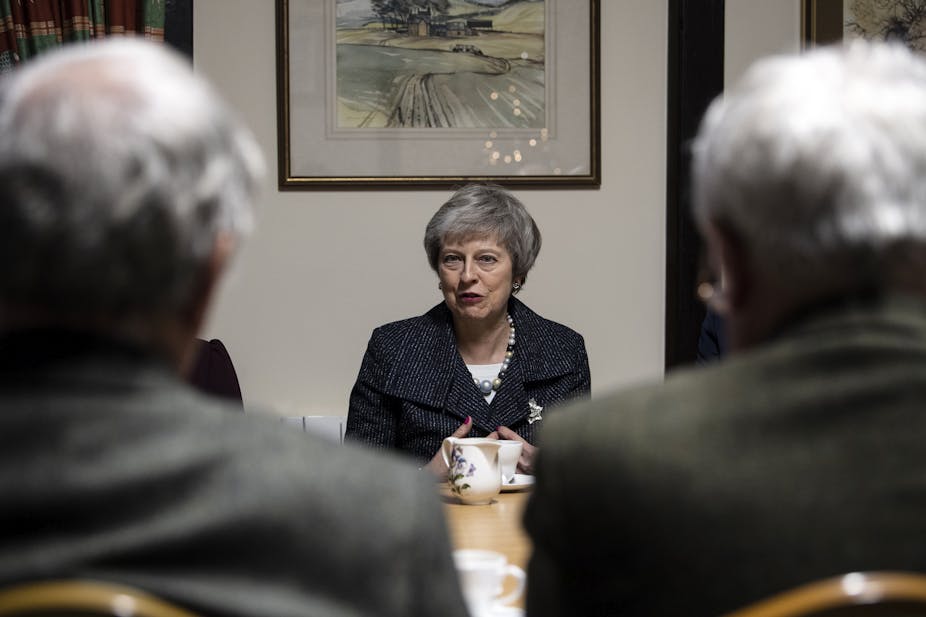During the debate in parliament on Theresa May’s Brexit statement on November 26, Labour MP Paul Farrelly asked the prime minister about the young people who have reached voting age since the Brexit referendum. He urged May to give them the opportunity to have their say in a new referendum.
These young people are now taking their first steps into post-18 adulthood amid the growing uncertainty created by the Brexit process. Many of them are in their first year of university, studying alongside their international peers. I asked a group of my own students, whom I teach British politics, to express their thoughts on Brexit in a letter to the prime minister. This is what some of them said.
A key theme among the post-referendum young adults was concern about immigration. Immigration has been seen as a key element in the Leave victory. Indeed, May used it as a justification for one of her “red lines” on ending the free movement of labour (meaning people) after the UK leaves the EU.
However, the concerns of these recently enfranchised voters were very different. Perhaps unsurprisingly, students from EU countries were concerned about their own status. One of them wrote:
I feel that I developed a special relationship with England and especially with London. For me, the United Kingdom is my second home. I know after Brexit it will be harder for young European people [to come here]. I am afraid that will dissuade them for coming to UK.
Another said that Brexit “led me to fear that my residency in the UK (me being an EU national and having lived here for around six years) will not be the same as it always has been”.
These sentiments are widely shared by EU27 nationals who have made the UK their home. Indeed, it is not just their settled status that worries them, but how they will be made to feel in a post-Brexit Britain. They fear the abuse that is “all too familiar for immigrants such as myself: ‘go home’, ‘get out of my country’”. This is a fear that may sadly not be unfounded, with police braced for a post-Brexit spike in hate crimes.
However, recently enfranchised UK young adults share some of the same concerns: “Let’s face it, the lives of millions of young people were determined by the elderly with concerns over immigration.” Another wrote “there could be potentially a lot of people losing residency in the UK, even working people who contribute to the UK economy”.
The views of many young, recently enfranchised voters seems to be captured by what one student wrote on immigration: “Brexit would not only affect my family but millions of other families living across the EU borders without fear and in hope of being able to travel without any restrictions to see their loved ones whenever they like. Brexit is a vote against the EU family, against globalisation and unity.” This illustrates one of the many divides in UK society exposed by Brexit – that between younger people generally comfortable with immigration, and older people for whom immigration is a problem.

Farrelly’s call for young people to have a say was also echoed by one student who wrote: “I felt that the best course of action was for the United Kingdom to remain a part of the European Union, however at the time of the vote, I was not of election age and therefore could not vote in the EU referendum”. It seems very clear that the People’s Vote campaigners are banking on this being a widespread sentiment and that a second referendum, including the option to Remain, would allow the UK to #exitfrombrexit.
The prime minister’s response was, as paraphrased in the Guardian: “on the basis of that logic, there would always be a need to hold a fresh vote”. May is absolutely right in that comment, and indeed this illustrates the problem with a referendum, especially one with as profound consequences as Brexit. In a general election, regardless of who wins or loses, there is always the possibility for newly enfranchised voters to change the post-election status quo at the subsequent election. Losers can become winners, and winners can become losers as voters change their minds and as new voters enter the fray. In a referendum there is no such automatic option for a rematch. The UK’s – and indeed the EU27’s – young adults will be the ones who have to live in a post-Brexit world created without their express consent.
With thanks to Salman Ahmad, Sumeyya Budak, Mantas Capskis, Shaira Karimi, Maria Maldonado, Callum McGloin, Afaq Muzaffar and other students who wished to remain anonymous for their input.

